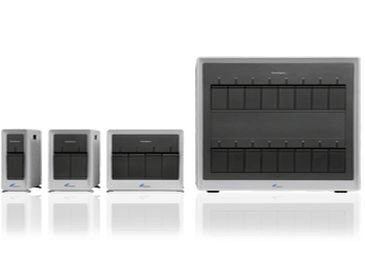WHO-endorsed rapid TB test brings hope to India
February 01, 2013 | Friday | News | By Rahul Koul Koul
WHO-endorsed rapid TB test brings hope to India
The Cochrane analysis Xpert test provides evidence that may help countries make decisions about scaling up Xpert for managing TB
According to a new systematic review which evaluates the diagnostic accuracy of the multidrug-resistant TB diagnostics GeneXpert MTB/RIF test published on January 31, 2013 in The Cochrane Library, the results have shown that the Xpert test can be a replacement for smear microscopy. The researchers from the Cochrane Infectious Diseases Group, McGill University and the Foundation for Innovative New Diagnostics (FIND), analyzed the data from 18 studies involving a total of 7,816 people, with most studies being carried out in low- and middle-income countries.
According to the authors, the study can provide timely advice for clinicians and policymakers in countries where TB is a major public health problem. The information in this regard was provided to BioSpectrum by Dr Madhukar Pai, assistant professor and Canadian Institutes of Health Research (CIHR) new investigator, McGill University, who is among the seven researchers who authored the report.
In India, the growing drug resistance is a major health problem that further complicates efforts to control TB. The multidrug-resistant TB is defined as the one which is resistant to rifampicin and isoniazid, the two of the most effective and widely used anti-TB drugs. Speaking of which, WHO has endorsed the Xpert test (Cepheid, California) that simultaneously detects TB and resistance to rifampicin, as an indicator of multidrug resistance. The test takes around two hours with minimal hands-on technical time required.
Complimenting the efforts of researchers, Ms Lucia Ditzy, executive secretary of the Stop TB Partnership, said, "We welcome the Cochrane Review of Xpert, an innovation that represents a major milestone in our quest to achieve the goal of zero deaths from TB which is curable, but still takes the life of three people every minute. Our "TB Reach" initiative is deploying Xpert to numerous countries through projects that seek to increase the number of TB cases detected and treated, and these projects will deliver data that can provide an evidence base for determining how Xpert should be used for the greatest impact."
Like sputum smear microscopy, which relies on detecting TB with a microscope in a laboratory, Xpert requires a sample of sputum. However, while thousands of bacteria must be present in each milliliter of sample for TB to be detected under the microscope, Xpert can detect TB bacteria at much lower concentrations. Additionally, the conventional microscopy approach does not detect drug resistance. Instead, TB has to be grown in the lab. This presents problems, especially for multidrug-resistant TB, due to the length of time required for the cultures to grow and highly skilled staff needed.
The results showed that when Xpert is used to screen 1,000 people, 150 of whom have TB, it picks up 132 of the 150 cases (88 percent) and falsely diagnoses17 (2 percent) with TB. This is in a scenario where it is being used as a replacement for smear microscopy. In a scenario where Xpert is being used as a replacement for culture-based drug susceptibility testing, it is also able to detect the equivalent of 141 out of 150 cases (94 percent) of rifampicin resistance. When Xpert is used as a follow-on test, after conventional smear microscopy has already produced a negative result, it picks up 101 out of 150 cases (67 percent). By definition, smear-negative TB is not picked up by smear microscopy because microscopy cannot detect small numbers of bacteria. Xpert picked up 67 percent of this group that would have been missed by microscopy.
"This study represents the most comprehensive review on the diagnostic accuracy of Xpert to date and may help countries make decisions about scaling up its use for management of TB and drug-resistant TB," said lead researcher, Ms Karen Steingart of Cochrane Infectious Diseases Group.
Dr Karin Weyer, coordinator, laboratories, diagnostics and drug resistance at WHO believes that it is the high quality evidence provided by Cochrane Review that reinforces WHO's endorsement of this test. She said, "Recent price reductions have greatly facilitated roll-out of this technology, including a new three-year initiative called the TB Xpert Project, funded by UNITAID and executed by WHO and the Stop TB Partnership. About 1.4 million test cartridges and over 200 GeneXpert instruments for the rapid detection of TB and rifampicin resistance will be distributed in 21 countries with a high burden of TB."









